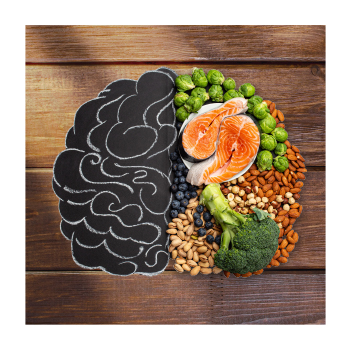


Sign-up for {N}power to get exclusive discounts, newsletters, members-only features, and more!

We’ve all heard of the Mediterranean Diet (MD). It is the most researched diet in the world and is a long-running favorite of healthcare practitioners and nutritionists. It comes out on top nearly every year as the best diet to eat for good health (it has been named the number one diet seven years in a row by US News & World Report)1 and there is no sign of its popularity waning. There’s good reason for this. All of that research has proven it’s golden for overall health and longevity, it’s easy to follow (it doesn’t focus on individual foods, but rather whole food groups), it is family friendly, and can be adapted to other types of diets, like vegetarian or Paleo.

What is it? The MD is the traditional diet eaten in the countries that border the Mediterranean Sea—namely southern Italy, southern Spain, northern Africa, Turkey, Greece, and parts of the Middle East. Characteristics of the original MD include a high consumption of virgin olive oil; high intake of vegetables, fruits, and legumes; regular consumption of fatty fish, milk, cheese, yogurt, eggs, meat, and nuts; the use of spices and herbs; and small amounts of alcohol (typically a small glass of wine with a meal). Additionally, the diet promotes sharing meals with family and friends and slowing down to savor the tastes, aromas, and textures of food. And yes, it really is that good for you.
A large body of research shows that following a MD reduces the risk of many chronic diseases, including cardiovascular disease (CVD), certain types of cancers, diabetes, depression, Alzheimer’s disease, Parkinson’s disease, rheumatoid arthritis, and asthma. Research also indicates that following a MD supports a healthy weight. Accordingly, the MD also seems to promote longevity and healthy aging.
It is likely that the potential health benefits from the MD come from the synergistic effects of an increased intake of phytonutrients, including flavonoids and other antioxidants, omega-3 fats, fiber, and vitamins and minerals. The many health benefits of a MD are related to its ability to reduce inflammation and oxidation in the body, both underlying causes of most modern-day diseases. The ATTICA study, a large, cross-sectional study involving 1,128 men and 1,154 women found that those most closely following a MD had lower levels of several markers of inflammation, including C-reactive protein (CRP), interleukin-6, tumor necrosis factor, fibrinogen, and homocysteine.2 Other studies have shown that extra-virgin and virgin olive oils, staples in the MD, contain phenolic compounds that suppress several pro-inflammatory genes3 and protect red blood cells from oxidation,4 which leads us to cardiovascular health…

In the past few decades, a number of epidemiological and clinical studies have evaluated the effects of a MD on total cardiovascular mortality, and all concluded that adherence to the traditional MD is associated with reduced cardiovascular risk. Until recently, though, the actual biological mechanisms were not fully understood. But modern science is beginning to shed some light on just how the MD supports cardiovascular health. One study of nearly 1,000 subjects who were at a high risk for CVD found that those adhering to a MD had reduced blood pressure, improved lipid profile, and improved insulin resistance, compared to those subjects following a low-fat diet. Additionally, the researchers found that virgin olive oil and nuts (both components of a MD) down-regulated several markers of inflammation, including CRP and interleukin-6 levels.5 It is well-documented that inflammation is an underlying cause of CVD.
Another study found that polyphenols in virgin olive oil down-regulated the expression of atherosclerosis-related genes. The polyphenols also had a significant impact on the expression of genetic changes influencing coronary heart disease. This study, too, found that the consumption of virgin olive oil, in conjunction with a MD, positively impacted lipid and DNA oxidation, insulin resistance, and inflammation.6

Although the MD was first studied in relation to cardiovascular health, more researchers have begun investigating the effects the diet has on the rest of the body, including the brain. Recent research has correlated adherence to a MD with slower cognitive decline, a reduced risk of dementia, including Alzheimer’s disease, and decreased mortality in Alzheimer’s patients. Researchers point to the MD’s ability to decrease inflammation and oxidation as potential mechanisms in protecting the brain.7 Using a point system to see how closely subjects adhered to the MD, with higher scores indicating eating patterns that closely followed the MD, one study found that those in the top one-third of the scores had 68 percent lower odds of having Alzheimer’s than those in the bottom one-third. Those in the middle one-third had 53 percent lower odds.8 A more recent study looking at dementia had similar results: those who had the highest adherence to the MD had a 72 percent lower risk for developing dementia.9
Still other studies have associated the MD with a lower risk of depression. A study following 10,094 healthy men and women found that individuals who followed the diet most closely had greater than a 30 percent reduction in the risk of depression. Again, the researchers pointed to the MD’s ability to lower inflammation and oxidation, while improving blood vessel function as potential mechanisms for promoting normal brain function.10
According to the World Health Organization (WHO), which looked at mortality statistics over a 30-year period, a diet that adheres to the traditional principles of the traditional MD is associated with longer survival.11 And a review of several studies found that a close adherence to the MD was associated with a significant decrease in general mortality among elderly people.12 When it comes to healthy aging, the MD has been found to help preserve muscle mass and bone mineral density, with a high adherence found to be related to a lower incidence of frailty and “functional disability” and better mobility in older adults.13 And as mentioned, the MD also preserves cognitive function.
There are literally thousands of published research studies on different health conditions and the MD. We’ve covered the big ones (cardiovascular and brain health and healthy aging/longevity), but there is a large body of research that shows following the MD supports other aspects of health too, including: healthy sleep (improving sleep quality and duration)14; reducing the risk of cancer15; gut microbiota and immune support16 17; metabolic health18; and type-2 diabetes19 (these are just a few studies from the last three years; there are so many more).

A commonality in all of the studies on the MD and health is how closely the subjects actually adhered to the diet—the better the adherence, the better the health benefits. Most studies used a point system to grade the subjects on how closely they followed the diet. One paper analyzed data from a number of studies, dating all the way back to 1966, and calculated the impact the MD has on major disease and mortality.20 The analysis found that as little as a two-point increase in scores produced statistically significant decreases in disease risk.21
Enjoy Your Food, Supplement the Rest
Following a dietary lifestyle like the MD will provide you with a solid foundation of vitamins, minerals, and phytonutrients like flavonoids, but there are certain factors—like modern food processing and production, mineral-depleted soil, and our modern lives which can make us quickly burn through specific nutrients—that make supplementing with a few foundational vitamins and minerals is a must. Supplementing your diet provides optimal amounts of these important nutrients, ensuring there are no nutritional gaps and optimizing your health to its fullest.



Sign-up for {N}power to get exclusive discounts, newsletters, members-only features, and more!